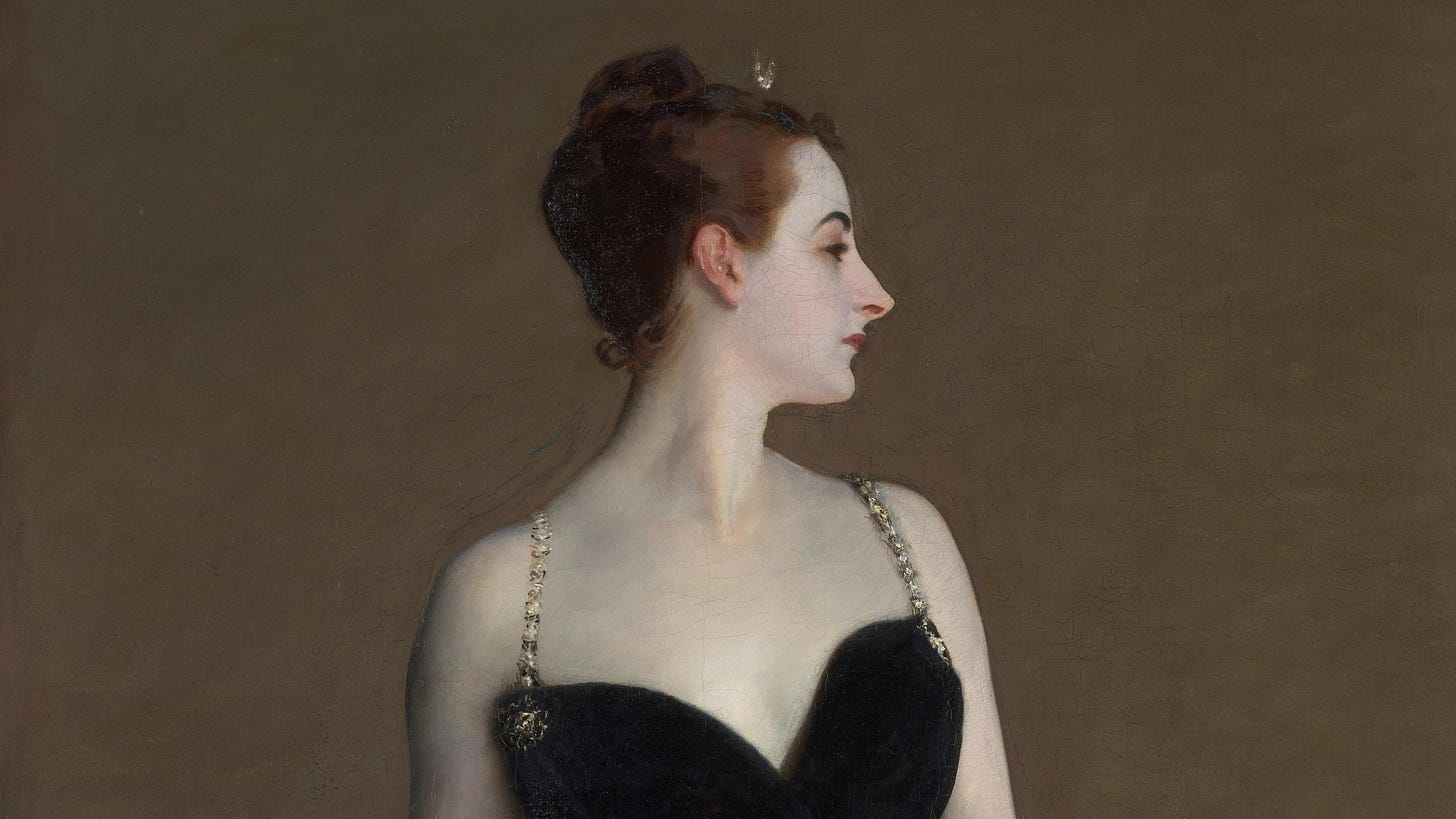An art scandal
There’s an iconic painting that hangs at the Metropolitan Museum of Art, and is much admired by the museum’s visitors.
But once upon a time the reception wasn’t quite as warm.
I’m speaking of John Singer Sargent’s portrait of French socialite Virginie Amélie Avegno Gautreau, Madame X, which was first unveiled at the 1884 Paris Salon.
The reaction to that painting nearly destroyed Sargent’s career.
The painting you see above, is not quite the original painting. It’s a revised one.
The original had one strap slipping off Gautreau’s shoulder. And that was the scandal. Yes, that’s all it took. The mere suggestion of something else.
The backlash was severe.
American painter Ralph Wormeley Curtis, whose work was also being exhibited, wrote that "There was a grande tapage [mob] before it all day." Of the public’s reaction he shared that "All the women jeer. Ah voilà 'la belle!' 'Oh quelle horreur!' [Ah, here is 'the beauty'!' 'Oh how horrible!'] etc." Newspapers and critics ridiculed Gautreau and h…




